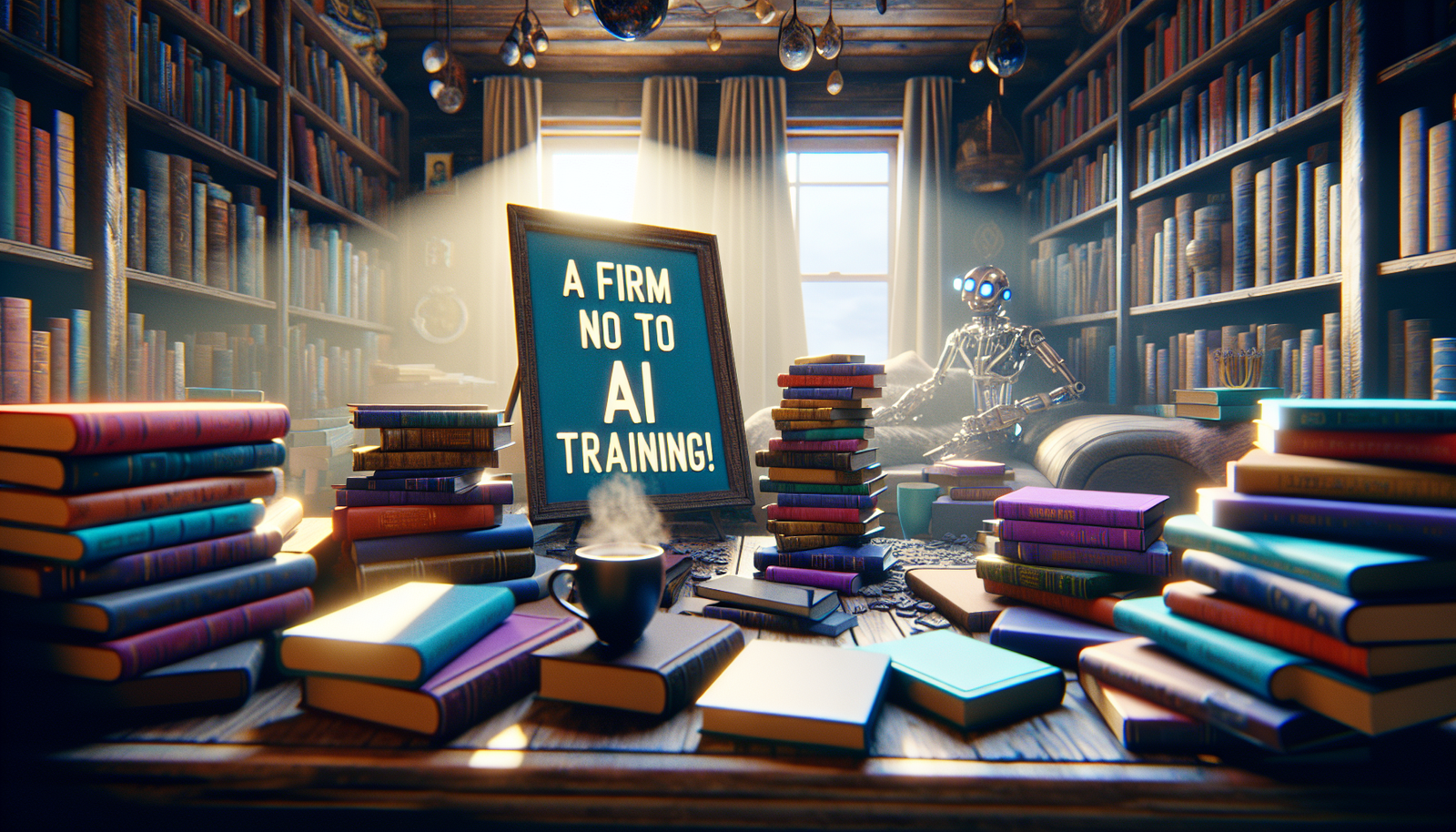The decision of the publishing house Penguin Random House to reject training by artificial intelligence marks a significant turning point in contemporary publishing. This refusal brightly illuminates the ethical challenges associated with the increasing automation of creative processes. In terms of literary integrity, this position as bold as it is controversial questions the future modalities of textual creation in the face of pervasive algorithms.
A firm stance on the use of AI
The publishing house Penguin Random House has recently decided to adopt a firm stance against the use of artificial intelligence in the writing and publishing of its works. This decision is set against a backdrop where the growing use of AI by several market players results in the proliferation of poorly conceived publications of questionable quality. Iconic works now aim to intensify their commitment to authentic literary productions.
Fake books and their implications
In the face of the massive emergence of fake books, often referred to as “garbage books,” written by artificial intelligence systems, Penguin Random House stands out with an ethical line of conduct. Thousands of works, with catchy titles and polished presentation, can be found on sales platforms without their content meeting the expected level of quality. This reality generates increasing confusion among consumers, who struggle to distinguish works written by human authors from those produced by algorithms.
The necessity of responsible AI
In this context, the question of AI responsibility often comes to the forefront. Publishing must ensure an *ethical practice*, where the integrity of literary creations is preserved. Public trust hinges on the ability of publishing houses to navigate this complex digital environment. Initiatives aimed at establishing standards and guidelines to frame the use of artificial intelligence are emerging, allowing publishers to proactively position themselves on the issue.
Reactions to the strategy change
This decision by Penguin Random House receives a favorable echo in the literary world. Luminaries such as Jane Friedman, journalist and author, commend this choice that aligns with a goal of protecting the integrity of literary creation. Discussions on the subject highlight the importance of preserving real human works, while expressing concerns about the quality of literature in the age of AI.
Eclectic footprint and directed innovation
Penguin Random House’s publishing choices should not overshadow the necessary innovation in the industry. The publishing house is exploring various ways to integrate emerging technologies while exclusively safeguarding creative processes. Projects involving collaborations with researchers and authors ensure that innovation does not equate to a degradation of literary quality.
Ethical challenges in the spotlight
One of the major challenges remains the ethics of data use in the context of algorithms. The ability of language models to produce original content raises numerous questions. Every book generated by artificial intelligence raises concerns regarding plagiarism and the protection of original content. These reflections lead publishers to build more robust governance frameworks around AI, thereby strengthening their responsibility towards authors and the public.
A future without compromises
The refusal to conform to the standards imposed by AI represents a stance that could redefine how books are created and published. In this sense, Penguin Random House positions itself as a model to follow, asserting with conviction that literature and technology can coexist, provided that the fundamental values of writing are respected. Rejecting the intrusion of AI into the creative process could initiate a renaissance of authentic and thoughtful literature, in the digital age.
FAQ on Penguin Random House’s decision regarding AI training
Why did Penguin Random House decide to say ‘no’ to AI training?
The publishing house made this decision to protect the integrity of its content and ensure that the works of its authors remain authentic and unique, without being replaced or altered by automatic generations by AI.
What impacts will this decision have on authors published by Penguin Random House?
This decision allows authors to continue creating works without fearing that their style or content will be used to train AI models, thus preserving intellectual property and human creativity.
How does Penguin Random House handle books written by existing AIs on the market?
Pengen Random House is committed to reviewing and regulating AI-generated works in its catalog to ensure they meet high standards of quality and originality.
What are readers’ reactions to this announcement?
Readers have largely expressed their support for the decision, highlighting the importance of human creativity in literature and opposing the automation of content production.
Does this policy affect other formats besides printed books, such as e-books or audiobooks?
Yes, the policy also applies to e-books and audiobooks to preserve the authenticity of all formats published by Penguin Random House.
Does Penguin Random House plan to revisit this decision in the future?
For now, the publishing house firmly maintains its position and has not indicated that it will consider re-evaluating this policy in the near future.
What other publishers have taken a similar stance on AI training?
Several publishing houses are beginning to question the use of AI in content creation. This movement is a growing indicator of the need to protect authors’ rights in the face of technological advancements.






